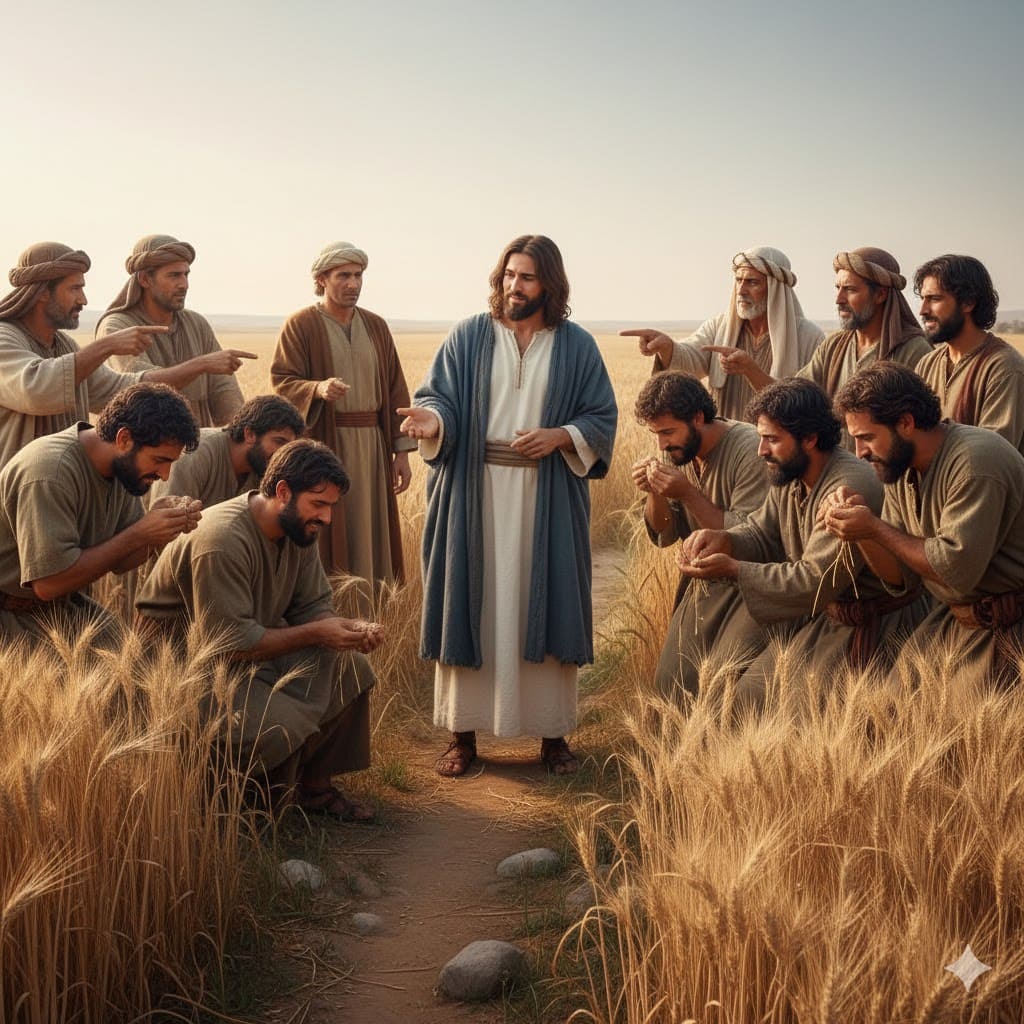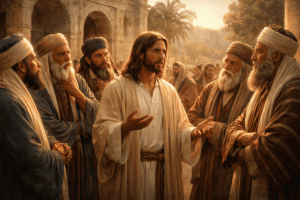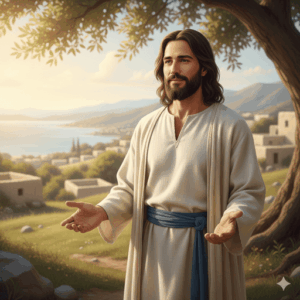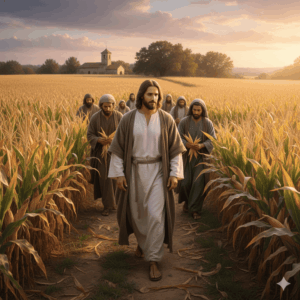In the first eight verses of Matthew 12, we encounter a story that cuts to the heart of religious observance, mercy, and the true meaning of the Sabbath.
These verses present a confrontation between Jesus and the Pharisees regarding the Sabbath law, ultimately challenging us to rethink what it means to honor God.
Let’s journey through Matthew 12:1-8 to explore its context, meaning, and relevance for believers today.
Biblical Passage Overview
Matthew 12:1-8 describes an incident where Jesus and His disciples, walking through grainfields on the Sabbath, began to pluck heads of grain to eat. The Pharisees, observing this, accused them of breaking the Sabbath law.
Jesus responds by referencing scriptural events and challenges their understanding of the law, culminating in the profound declaration, “The Son of Man is Lord of the Sabbath.”
To fully grasp this passage, it’s important to understand the significance of the Sabbath.
The Sabbath—a day set aside each week for rest and worship—is one of the most important commandments of God. (Exodus 20:8-11)
Over time, religious leaders developed detailed rules regulating what activities constituted “work” and were therefore forbidden on the Sabbath, intending to safeguard the law but often extending its requirements far beyond the original intention.
For the Pharisees, strict adherence to these interpretations became a mark of righteousness.
Anything that looked like work, including picking grain (even for personal consumption), could easily be seen as a violation of the Sabbath.
The Incident in the Grainfields
Against this background, Jesus’ disciples plucking and eating grain seemed a straightforward violation.
The Pharisees confronted Jesus, essentially accusing His followers of disregarding God’s sacred commands.
Their question was not simply about legal technicalities; it was a challenge to the authority and spiritual integrity of Jesus and His teaching.
Jesus’ Response
Jesus’ answer is profound and layered. He first directs the Pharisees to Scripture itself, citing two examples:
David and the Bread of the Presence (1 Samuel 21:1-6):
David, when hungry and on the run, ate the consecrated bread reserved for priests. This example illustrates that human need can take precedence over ritual law.
Priests Working on the Sabbath:
Jesus notes that priests perform their temple duties on the Sabbath, which technically involves work, yet are considered blameless because their service is to God.
He then makes two exceptional statements:
“Something greater than the temple is here.” In saying this, Jesus asserts His own unique authority and presence as surpassing even the most sacred Jewish institution.
“If you had known what this means, ‘I desire mercy and not sacrifice,’ you would not have condemned the guiltless.”
Here, He quotes Hosea 6:6, reminding the Pharisees that the heart of God’s law is mercy, not just ritual observance.
Finally, Jesus proclaims, “For the Son of Man is Lord of the Sabbath.” With this declaration, He affirms His divine authority to interpret the true intent of the Sabbath.
The Purpose and Spirit of the Sabbath
Jesus demonstrates that the Sabbath was never meant to be a burden, but a gift—a day to focus on God and human well-being. The legalistic approach of the Pharisees missed the Sabbath’s original intention: rest, mercy, and restoration.
Mercy Before Legalism
The central point of Jesus’ teaching is that mercy should take precedence over rigid sacrifice. True religious practice, according to Jesus, is not about mere rule-keeping but about compassionate love and meeting human need. When laws become tools for condemnation rather than restoration, they have lost their purpose.
Jesus’ Authority
By identifying Himself as “Lord of the Sabbath,” Jesus places Himself above any human interpretation of the law. He claims a direct authority that comes from God Himself, challenging everyone to look to Him for the ultimate meaning of Scripture and life.
Compassion Over Ritual
The incident reveals a recurring biblical principle: God values compassion over ritual. This is not to dismiss laws or commands, but to place them in the proper perspective.
Laws were given to promote life, love, and relationship with God—not to stifle or burden.
Redefining Religious Observance
Jesus’ interaction with the Pharisees recasts what true worship and holiness look like. They are characterized not by external compliance, but by a heart attuned to God’s mercy—a heart that recognizes human need and responds with love.
Guarding Against Legalism
Modern Christianity, too, can risk becoming overly legalistic—valuing traditions, rituals, or interpretations above compassion and love. Jesus’ words remind us to continually ask: Are our practices truly reflective of God’s heart? Do they bring life, or do they burden others?
Prioritizing Human Need
This passage calls believers to put mercy into action, especially in situations where tradition might conflict with genuine need.
Whether addressing poverty, hunger, sickness, or any human hardship, the principle remains: acts of love and service align us with God’s priorities.
Embracing Jesus’ Lordship
In all our religious practice, we are called to recognize Jesus as Lord. His life, teachings, and ultimate sacrifice set the pattern for how we interpret Scripture and live out our faith.
Conclusion
Matthew 12:1-8 stands as a powerful corrective to empty religiosity and legalism. It calls us away from mere rule-keeping and invites us into the deeper meaning of God’s commands: to love mercy, act justly, and walk humbly with our God (Micah 6:8).
Jesus, the Lord of the Sabbath, not only gives us rest from our burdens but calls us to offer that same grace to others. In doing so, we fulfill the true intent of the Sabbath—and the heart of God’s law.
My Letter To A Sunday Keeper – Sabbath Documentary

The Days of Noah – Powerful Documentary (Video Format)

Bible Studies – Written Format







